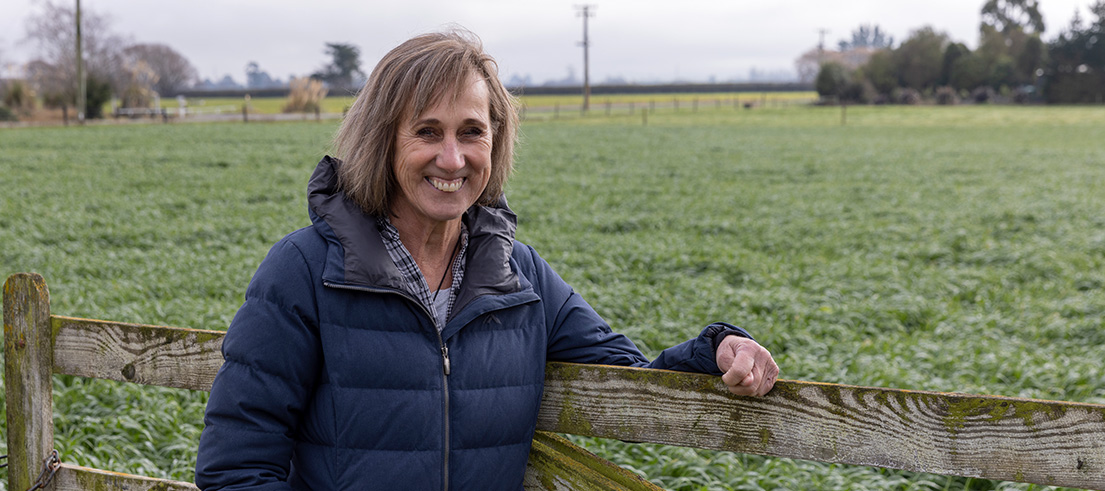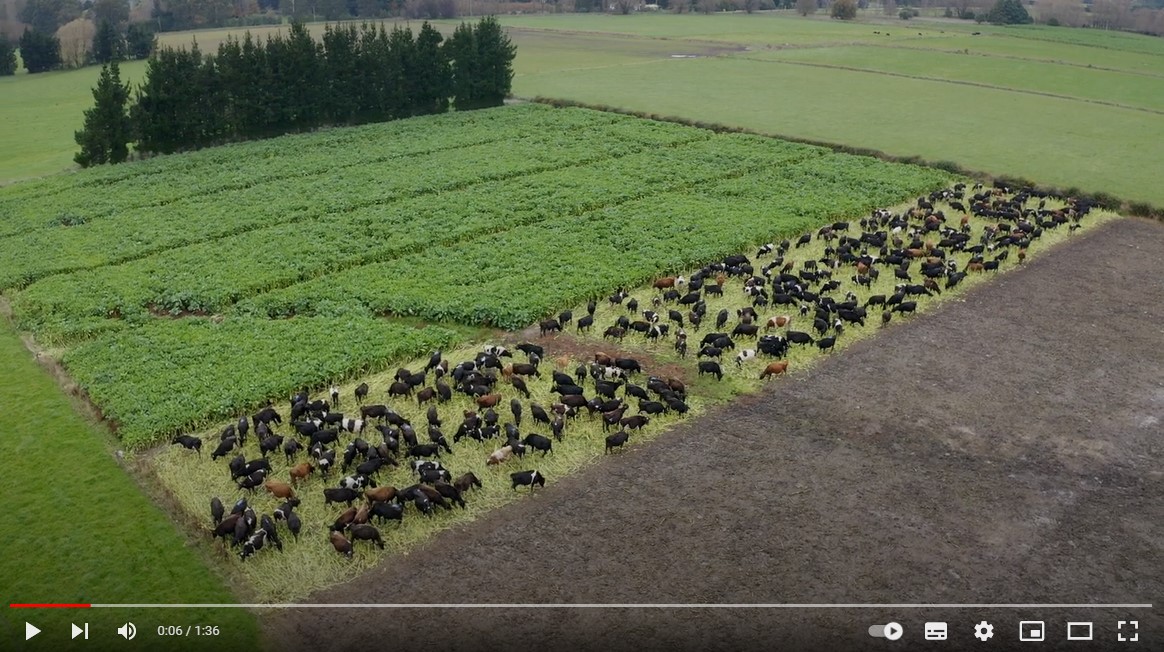
Genomic data empowers decision-making
Over the past two years, Fernside farmer Julie Bradshaw has refined her dairy herd size through the use of genomics while maintaining the same level of milk production.
Julie has been participating in a Next Generation Farming project designed to help farmers meet tough nitrate caps while maintaining their viability. As part of this project, farmers like Julie are using innovation to demonstrate productivity and environmental benefits to their neighbours in the region and beyond.
Waimakariri Landcare Trust (WLT) and Waimakariri Irrigation Limited (WIL) have partnered with the Ministry for Primary Industries (MPI) for the project, with support from MPI's Sustainable Food and Fibre Futures fund along with Environment Canterbury, Ballance, and DairyNZ.
Reducing herd size
The biggest change Julie has made on her farm over the last two years is closely examining her herd selection process using genomic data.
Julie has already reduced her herd size by 15 cows and is planning to remove 10 of last year's calves based on genomic data she has received from Livestock Improvement Corporation (LIC). She credits the reliability of the information with helping her to make these science-based decisions.
"The advances in the data we are getting now, and the reliability of that data means that we can be certain about which animals to keep.
"There is no point paying for grazing for animals for three or four years that don't end up being productive dairy cows.
"With the reductions I have made I have still retained the same level of milk production, so I know I have made the right decision."
In the past, Julie would have retained cows with low BW (Breeding Worth) but with the possibility of reductions in the numbers of cows on farms in the future, she wants to ensure that her herd is performing at its best.
"When you look at what is happening overseas you can see that farmers have already reduced their herd numbers and it is only a matter of time before it happens here.
"It is challenging but you need to look at your entire farming operation and see what you can do to farm more efficiently. With all the science and data that we can access now it makes sense to use all the tools you have in your toolbox."
Farming in the future
Julie says she believes genomics and scientific innovation will play an increasingly significant role in New Zealand farming in the future.
"When I look at the data I am getting now compared to a few years ago it is amazing. I think the data will continue to improve as more herds get involved and this will be a huge benefit to everyone involved in the farming industry."
Julie has shared her learnings from the innovation project with local farmers and she says most of them are keen to know more about her journey and can see the benefits of using science to improve their farms.
"Farmers are supportive and willing to share what they have learned. If you are a farmer who is open to innovation and new ideas, I believe you will be able to continue to farm into the future and have a successful farming business."

